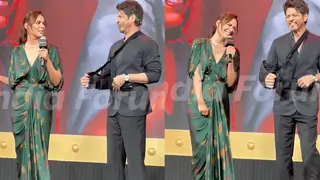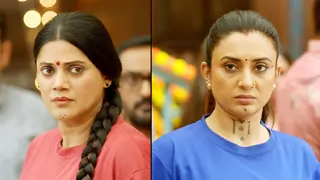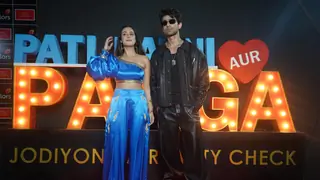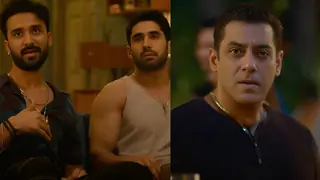Dec 11, 2007
Much to the delight of fantasy-lovers and the sneer of cynics, the Om Shanti Om hangover continues in Hindi filmdom. Over the next few weeks, the industry's dream merchants promise us even more interesting takes on Bollywood in our popcorn entertainment diet. Sudhir Mishra's Khoya Khoya Chand is a flashback journey through the old film studios and vintage cameras of the '50s, while Rajkumar Santoshi's Halla Bol has the Hindi film industry as its backdrop too, narrating, in a slightly serious note, the dilemma of a superstar caught in a controversy. "Khoya captures Bollywood over the '50s and '60s. It's the love story of the era's reigning heroine and director," says Mishra. "In those days, it took even more passion and sacrifice to make it big in the industry; it makes for a great subject." It isn't surprising that the magical Hindi film industry, with its inherent fantasy, glamour, stardom and myths and clichs has inspired filmmakers like Mishra and Farah Khan, whose '70s reincarnation tale, OSO, has become a mega box-office success. It made for a spectacle when its actor, Deepika Padukone, as a yesteryear heroine, was seen tapping her feet with the likes of Rajesh Khanna, in a special effects-enabled scene. "From the superstar, director and 'bad' producer to the junior artist and the dedicated fan—everyone in Bollywood has a moving story to tell. Besides, there is a lot of curiosity surrounding the land of movies," says Mushtaq Sheikh, who has co-written the script of OSO along with Khan and authored a book on the making of OSO. In the past, Guru Dutt's tragic love story Kagaz Ke Phool (that of a heroine and a director) too zoomed in on the world beyond the camera. The recent Woh Lamhe portrayed a tumultuous director-heroine affair (based on Parveen Babi and Mahesh Bhatt). In the earlier half of the decade, Nagesh Kukunoor with his Hinglish Bollywood Calling and Vinta Nanda with White Noise offered glimpses of the flipside of moviemaking (White stressed more on the untold stories of the television world). However, unlike OSO, both the films chose to tread on the realistic path, rather than celebrating the genre of Bollywood, and expectedly created little impact in the BO. "Apart from OSO, no other films revolving around Bollywood have been successful," says Khan. "And I don't plan to make another film on this subject." Mishra seems to be playing safe too. "Bollywood, after all, is not such a terrible place," he says. Santoshi, whose Halla reportedly narrates the chain of events when a superstar has his brush with politics, also denies reference to any particular incident. (Although murmurs that Aamir Khan has been the cue for this have already begun.) "I'm inspired by what's happening around us, but my story is fictional," he says.
It's difficult to stay away from spoof when the reference point is Bollywood. The funny one-liners and sequences that OSO sold as a tribute to '70s' Bollywood were more caustic in Kukunoor's rendition of the subject.





















1